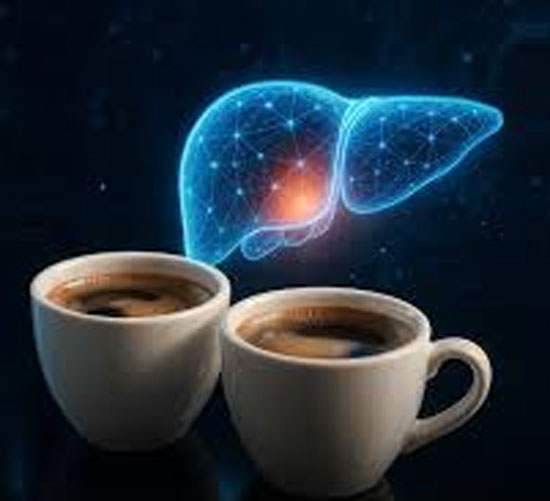Daijiworld Media Network – New Delhi
New Delhi, Nov 28: For millions across the globe, a morning cup of coffee is more than a habit — it’s a comforting routine that sparks focus and energy. Now, emerging scientific research suggests that this simple daily ritual may also offer a powerful protective benefit to one of the body’s most vital organs: the liver.
With liver cancer rising sharply worldwide, researchers are examining whether coffee could help reduce long-term disease risk. A recent peer-reviewed dose–response meta-analysis involving over 130,000 participants reported that increasing coffee intake by two cups daily was linked to nearly a 35% lower risk of hepatocellular carcinoma, the most common form of liver cancer. The association held strong even after adjusting for alcohol use, hepatitis infections and BMI.

How coffee may protect the liver
Coffee contains more than a thousand biologically active compounds — including antioxidants, polyphenols and diterpenes — that may reduce inflammation, prevent oxidative stress and slow the progression of liver fibrosis. When chronic liver damage progresses unchecked, it can lead to cirrhosis, significantly increasing liver cancer risk.
Multiple international studies show that regular coffee drinkers have lower rates of chronic liver disease, cirrhosis and liver cancer compared with non-drinkers. Experts say the findings may especially benefit people already living with fatty liver disease or viral hepatitis.
What global research shows
A growing body of evidence highlights a strong inverse relationship between coffee consumption and liver cancer:
• An analysis of nine major studies involving 239,000 participants found that two extra cups of coffee daily corresponded to a 43% reduction in liver cancer risk.
• A 2013 review showed that any level of coffee drinking was linked to about 40% lower risk of hepatocellular carcinoma compared to none.
• Newer meta-studies indicate similar benefits for both caffeinated and decaffeinated coffee, suggesting caffeine alone is not responsible — the benefit likely comes from coffee’s complex mix of compounds.
How much coffee makes a difference?
While there is no universal guideline, moderate consumption appears most beneficial. Many studies point to two to four cups per day as offering measurable protection. The effect seems consistent across espresso, filter and instant coffee.
However, excessive intake may trigger insomnia, digestive discomfort or elevated heart rate, depending on individual sensitivity.
What coffee can’t do
Experts caution that coffee is not a cure or a substitute for healthy habits. It cannot offset high-risk behaviours like heavy alcohol consumption, smoking, obesity or unmanaged hepatitis. Regular liver screening remains essential for those at higher risk.
Coffee should be viewed as one part of a broader lifestyle that includes a balanced diet, weight control, limited alcohol and avoiding smoking.
Does it work for everyone?
Studies show the association is consistent across gender, ethnicity and underlying liver health. However, individuals with heart rhythm issues, gastric disorders, severe anxiety or pregnant women should seek medical advice before increasing their intake.
A simple habit with potential long-term benefits
Growing scientific evidence indicates that moderate coffee consumption may lower liver cancer risk through anti-inflammatory and antioxidant effects and by slowing chronic liver disease progression. While further research is needed to establish direct causation, current findings offer reassuring insights for coffee lovers — and a compelling reason for others to consider adding moderate coffee intake to their daily routine.